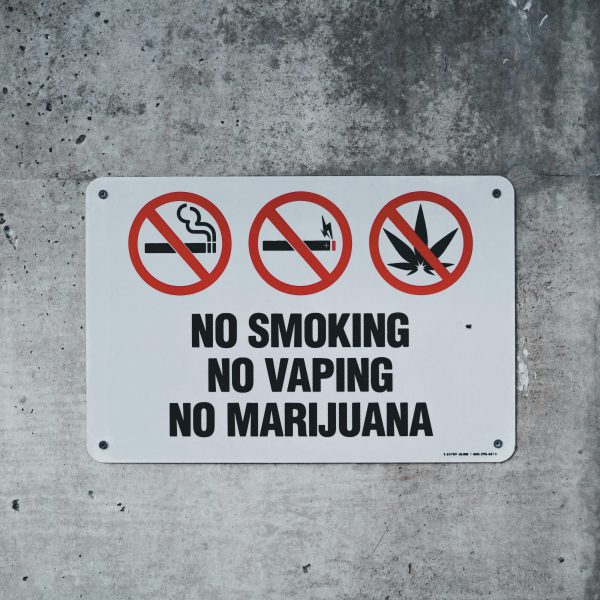In any relationship, it’s important to set boundaries and acknowledge that certain behaviors should never be tolerated. Toxic relationship behaviors go beyond just arguments and jealousy. They can also involve subtle actions that have a negative impact on your self-esteem and your perception of the world around you. Understanding which dynamics within a relationship can harm your mental well-being is crucial. It empowers you to make informed decisions and take steps to protect yourself.

Identifying 7 Harmful Relationship Behaviors
In relationships, many harmful behaviors revolve around power and control. Let’s explore seven toxic behaviors you should be aware of:
1. Gaslighting
Gaslighting, as defined by Janika Veasley, a marriage and family therapist based in Yardley, Pennsylvania, involves making someone doubt their sanity, experiences, and even their reality. This form of emotional manipulation is alarmingly prevalent and a behavior that should never be accepted. Recognizing gaslighting is crucial, and it’s equally important to equip oneself with strategies to deal with this toxic behavior effectively.
For Example, Imagine you and your partner agreed to go out for dinner tonight, but when the time comes, your partner denies ever making such plans, making you doubt your memory. This is gaslighting, where someone manipulates your perception of reality to question your sanity and experiences.
2. Humiliating
Humiliation is when someone makes fun of you or criticizes you in a hurtful way, often through sarcastic jokes or harsh comments. While some teasing is fine in relationships, it becomes a problem when it hurts your feelings or targets your insecurities. Recognizing and addressing such behavior is important to maintain a healthy and respectful relationship.
For example, Imagine your partner constantly making sarcastic comments about your appearance, making fun of your weight or clothing choices in a hurtful way. This kind of behavior goes beyond friendly teasing and can be considered humiliation, as it targets your insecurities and is not conducive to a healthy relationship.
3. Isolating
Isolation isn’t always evident, like being stranded on a deserted island. Sometimes, it creeps in slowly and subtly over time. Often, you don’t realize it until you’re cut off from friends and family, left without a support system. You might start noticing that your partner frequently finds excuses to skip social gatherings. They might complain about your friends being a negative influence or express discomfort around your family.
For example, they conveniently “forget” important occasions, scheduling romantic dinners at the same time, or suddenly falling ill when it’s time to visit your relatives. They might unexpectedly need your support on nights out with your friends, subtly isolating you from your loved ones.

4. Stonewalling
Stonewalling means shutting down and not talking, like giving someone the silent treatment. It happens when someone, especially when they’re upset, chooses not to communicate. While some people struggle to express their feelings, deliberately ignoring or avoiding communication can be a harmful way to punish your partner in a toxic relationship.
For example, Imagine you and your partner have an argument. Instead of discussing it, your partner completely ignores you for days, not responding to your messages or even acknowledging your presence. This is an example of stonewalling, where they shut down and refuse to communicate as a way to punish you or avoid the issue.
5. Threatening
Threats can sometimes be disguised in words, but they are often quite explicit and are meant to instill fear or doubt in you. These threats can be directed toward you personally, but they can also target the things and people you hold dear, creating an atmosphere of intimidation and concern.
For example, Imagine your partner says, “If you ever leave me, I’ll make sure your family knows all your secrets.” This statement contains a clear threat, aimed at causing you to fear the consequences of ending the relationship and doubt your choices.
6. Blame shifting
Blame shifting happens when someone avoids taking responsibility for something they did wrong by turning it around and putting the blame on you. It often involves saying things like, “If you hadn’t done this, then I wouldn’t have done that.” Blame shifting can make you feel guilty and dismiss your own feelings. It shifts the focus away from your emotions and needs and onto what you’re accused of doing or not doing.
For example, Imagine you tell your partner they forgot your anniversary. Instead of apologizing, they blame you by saying, “If you weren’t so busy with work, I wouldn’t have forgotten.” This is blame shifting, where they avoid responsibility by putting the blame on you.
7. Forcing dependence
While some couples divide financial responsibilities by mutual agreement, it can become toxic if it’s used to make you powerless and overly dependent on your partner. When you lack access to money, can’t review documents, or are kept uninformed, you may find yourself relying on your partner for decisions. This can trap you in an abusive situation, as you may lack the means or knowledge to leave without losing everything.
Imagine your partner takes full control of finances and keeps you in the dark about money matters. This can make you reliant on them for decisions, leaving you feeling trapped in an abusive relationship without the means or knowledge to leave safely.






